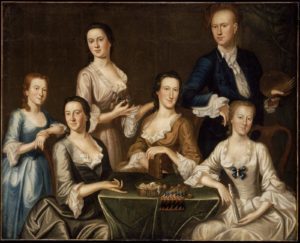Arguments are being made that sibling influences outdo parental ones in importance. A 2014 NPR article reported on research indicating that younger siblings tend to copy the elder in out of wedlock pregnancies. Similar influence is shown in behaviors such as smoking and drinking. Richard Rende, a professor of psychiatry at Brown University and one of the researchers, is quoted as saying, “some of the new findings really challenge the idea that parents are the most important influence on children.” I hope the actual research is more complex than the article suggests.
It is not surprising to read that younger siblings may model their older siblings rebellious behavior. Naturally, when older siblings challenge house rules, they may normalize behavior that might otherwise seem too intimidating to question. And stupid choices teenagers make can have life-altering impact.
But such influences, despite their impact, are still ones that come later in life, when a young person is making conscious decisions; in contrast, parental influences tend to be of the character-forming variety: of how much the child feels loved and safe, of how much his emotions are mirrored so that he feels understood and supported, of how much his curiosity is encouraged, of everything that contributes to the building of self-esteem and the sense of personal agency. Parental influences are of the type that leads to the creation of identity and are essential to the choices the child will make later in life.
It is also possible that the indirect influences of the sibling may be more significant than the later direct ones of modeling behavior. How does the child perceive his place in the family? How does he see himself in relation to his sibling as reflected by his parents’ treatment of them both? How does he perceive his talents and abilities in comparison with those of his sibling? These influences contribute to making the identity of the child and necessarily influence relationships with peers and others the rest of his life.
Decisions about smoking, drinking, and casual sex can set one on a destructive path from which it may be hard–though not impossible–to escape. But there is no escape from identity and character, which determine all the choices we make in life, good and bad.

Leave a Reply